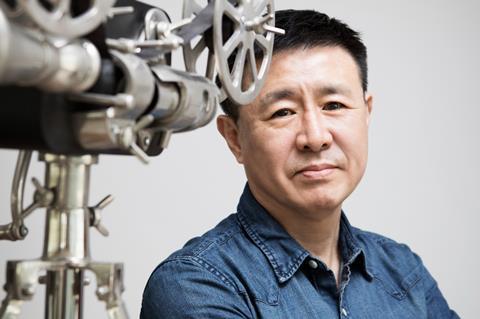
Park Ki-yong is to step down as chairperson of the Korean Film Council (KOFIC) and revealed he will make a return to filmmaking to help the country’s film industry “regain its form”.
The move is not unexpected as his two-year term ended on January 8 but a successor has yet to be appointed and Park remained in the role until today (January 31) as KOFIC continues to seek a replacement.
As a result, the government-funding support and promotion agency will operate under an ‘acting system’ until the next chairperson is elected, led by KOFIC vice chairperson Kim Seonah.
“For the past two years, I have been working with the film industry, the National Assembly, government officials, and the staff of the KOFIC to overcome the biggest crisis facing the Korean film industry in the aftermath of the corona pandemic, but I feel a heavy responsibility to leave without seeing Korean cinema make a comeback,” he said at a retirement ceremony on Monday. “I will now return to being a filmmaker and help K-movie regain its form.”
Park took office in January 2022 and notable achievements during his tenure included securing $60m (KW80bn) for the national film development fund, which is maintained by a percentage taken from cinema ticket sales and was heavily impacted by the Covid-19 pandemic.
The fund was further bolstered earlier this year when Park helped secure $22.5m (KW30bn) from Korea’s sports fund and an additional $4m (KW5.4bn) from the country’s lottery fund.
Speaking to Screen in October, Park acknowledged that the Korean film industry was in “a dire situation” with a backlog of unreleased films preventing new titles from securing financing.
After consulting across the industry, he is credited with leading major policy agendas such as ‘holdback’ and ‘theatre ticket prices’ for the growth of the film industry. At the end of last year, Park secured permission to build a filming studio in Gijang-gun, Busan – a long-awaited KOFIC project – and contributed to taking the first step towards the studio’s construction.
He also led the launch of the Asian Film Alliance Network (AFAN), a collective of film organisations from seven Asian countries, and the establishment of the Korea-France Film Academy. In recognition of this, Park was awarded the Order of Merit in May last year by the French Ministry of Culture, recognising individuals for their contributions to the culture and the arts worldwide.
Park plans to return to work next month as a professor of the feature film production department at Dankook University’s Graduate School of Arts and Culture, where he worked before his appointment.
Park is known as a producer of films such as 1993 historical war drama To The Starry Island by Park Kwang-su.
As a director, his films include the Busan New Currents Award winner Motel Cactus (1997), on which Bong Joon Ho was screenwriter, and Camel(s), which won the Grand Prix at Fribourg International Film Festival in addition to screening at festivals such as Toronto and Berlin.
He was also head of the Korean Academy of Film Arts from 2003 to 2009 and head of the Cinema Digital Seoul Film Festival from 2006 to 2009 as well as in 2012.
In a statement, KOFIC said that once the two successors of Park and another council member have been appointed, the agency will elect a new chairperson.
























No comments yet